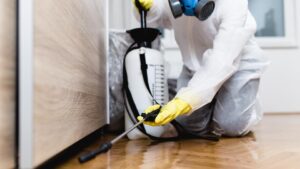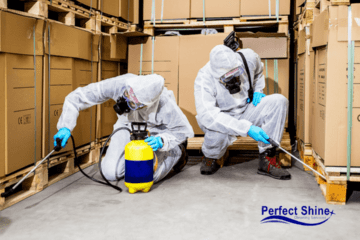Importance of selecting the right pest control service provider
The importance of selecting the right pest control service provider cannot be overstated. Here are several key reasons why choosing the right provider is crucial:
1. Effective Pest Management: The primary goal of hiring a pest control service provider is to effectively manage and eliminate pest infestations. A reputable and experienced provider will have the knowledge, expertise, and access to effective treatment methods and products necessary to address your specific pest problem. By selecting the right provider, you can ensure that pests are efficiently eradicated from your property.
2. Health and Safety: Pests can pose significant health risks to you, your family, and your pets. They can transmit diseases, contaminate food and surfaces, and cause allergic reactions. A professional pest control service providers understands the health hazards associated with pests and utilizes safe and appropriate methods to eliminate them. They will take the necessary precautions to protect your health and ensure the safety of the treatment process.
3. Proper Identification and Treatment: Different pests require different treatment approaches. A knowledgeable pest control provider will accurately identify the type of pest infestation you are facing and customize a treatment plan accordingly. They have the expertise to distinguish between various species and apply targeted solutions to effectively eradicate pests while minimizing environmental impact.
4. Long-Term Prevention: The right pest management service provider not only eliminates existing pests but also focuses on long-term prevention. They will offer advice and recommendations on how to prevent future infestations, such as sealing entry points and implementing pest-proofing measures. By addressing the root causes of pest problems, they can help ensure that your property remains pest-free in the long run.
5. Time and Cost Efficiency: Choosing a reputable pest control service provider can save you valuable time and money. DIY pest control methods can be time-consuming, ineffective, and may require multiple attempts. Hiring professionals allows you to benefit from their expertise and efficient treatment methods, ensuring that the pest problem is resolved promptly and effectively. This can save you from potential damage caused by pests and the expenses associated with repeated attempts at control.
6. Peace of Mind: Dealing with a pest infestation can be stressful and disruptive to your daily life. By selecting a affordable pest control service provider, you can have peace of mind knowing that experts are handling the situation. You can trust that they will employ effective measures to eradicate pests and restore the comfort and safety of your home.
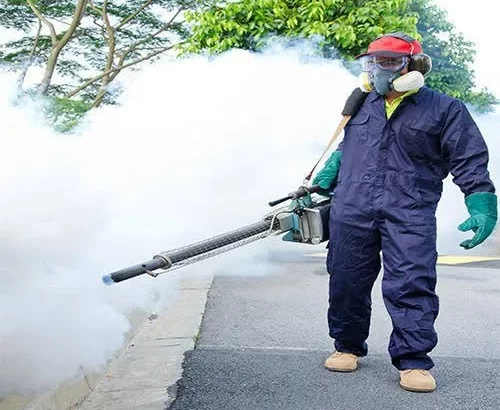

Types of Pest Problem
Identifying the type of pest problem is a crucial step in effective pest control. Here are some guidelines to help you identify the type of pest you are dealing with:
1. Visual Observation: Carefully observe the pests in your home or property. Note their appearance, size, color, and any distinguishing features. Take photographs if possible to aid in identification.
2. Pest Droppings: Examine any droppings or fecal matter left behind by the pests. Different pests have distinct droppings, which can provide valuable clues for identification. Pay attention to the size, shape, color, and texture of the droppings.
3. Damage Patterns: Observe the damage caused by the pests. Look for chewed wires or wood, gnaw marks, holes in fabrics or food packaging, or signs of burrowing. The type and location of the damage can help narrow down the possibilities.
4. Pest Behavior: Note the behavior of the pests. Are they active during the day or night? Do they fly, crawl, or jump? Some pests may exhibit specific behaviors that can assist in identification.
5. Pest Tracks or Nests: Look for tracks or trails left by the pests, such as greasy marks along walls or baseboards. Pests often leave behind nests or sheltered areas where they hide or breed. Locating these nests can provide important clues about the pest species.
6. Webbing or Silken Tubes: Spider webs or silken tubes may indicate the presence of spiders or certain types of insects, such as webbing clothes moths or pantry pests.
7. Pest Sounds: Pay attention to any sounds the pests make. Some pests, like rodents or certain insects, may produce audible noises such as scratching, scurrying, or buzzing.
8. Seeking Expert Advice: If you are unsure about the pest identification, consider reaching out to a professional pest control service provider or an entomologist. They have the knowledge and expertise to accurately identify the pests and recommend appropriate treatments.
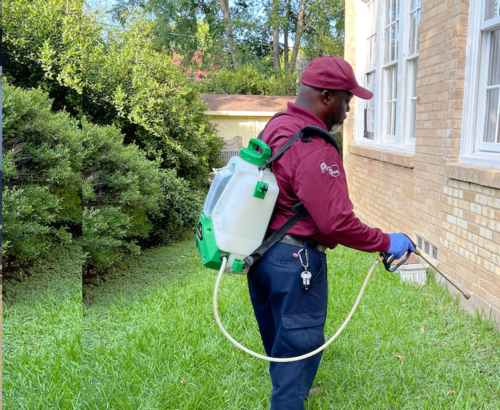

Researching Pest Control Service Providers
A. Gathering recommendations from trusted sources (friends, family, neighbors):
– Reach out to friends, family members, or neighbors who have recently used pest control services. Inquire about their experiences and ask for recommendations based on their satisfaction with the provider’s services.
B. Checking online reviews and ratings:
– Conduct online research to find customer reviews and ratings for various pest control service near me in your area. Read both positive and negative reviews to get a comprehensive understanding of their reputation and the quality of their services.
C. Verifying the company’s licensing, certifications, and insurance:
– Ensure that the advanced pest control service provider is licensed and certified to perform pest control operations in your area. Check with the relevant local or state regulatory agencies to verify their credentials. Additionally, confirm that the company carries adequate insurance coverage to protect you and your property in case of any unforeseen incidents.
D. Reviewing the range of services offered:
– Evaluate the range of services offered by different pest control providers. Ensure that they specialize in the specific type of pest problem you are facing. Some companies may focus on general pest control, while others may specialize in particular pests like termites, rodents, or bed bugs. Choosing a provider with expertise in handling your specific pest issue is crucial for effective treatment.
E. Considering industry affiliations and memberships:
– Look for pest control service providers that are affiliated with professional associations or industry groups. These affiliations demonstrate a commitment to industry standards and continuous education, indicating their dedication to providing quality services.
F. Inquiring about guarantees and warranties:
– Ask about any guarantees or warranties offered by the pest control service providers. A reputable provider should stand behind their work and offer assurances that their treatments will be effective. Clarify any terms or conditions associated with guarantees to ensure you understand the coverage provided.
G. Obtaining multiple quotes:
– Request quotes or estimates from multiple pest control service providers. Compare the pricing structures, included services, and any additional costs or fees. While price is a consideration, it should not be the sole determining factor. Focus on the overall value and quality of the services offered.
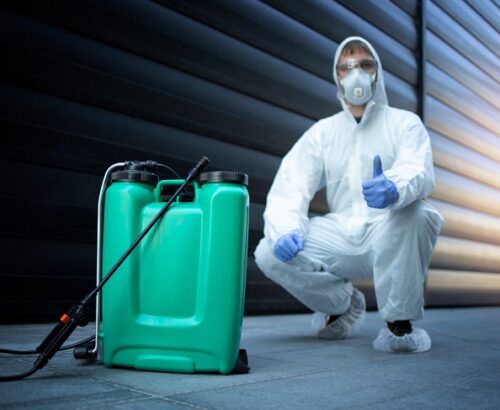

Understanding Pest Control Methods and Products
A. Learning about the company’s approach to pest control (e.g., integrated pest management):
– Inquire about the pest control company’s approach to pest management. Integrated Pest Management (IPM) is a holistic and environmentally conscious approach that emphasizes prevention, monitoring, and targeted treatment. Ask if the company follows IPM principles or has a similar strategy in place to minimize the use of pesticides and promote long-term pest control solutions.
B. Inquiring about the types of products and treatments used:
– Request information about the specific products and treatments the pest control service provider utilizes. Inquire about the effectiveness, safety, and potential side effects of these products. It is important to ensure that the products are registered and approved for use by the relevant regulatory authorities.
C. Considering the company’s commitment to eco-friendly or child/pet-safe solutions:
– If eco-friendliness and the safety of children and pets are important to you, ask the pest control service provider about their commitment to using environmentally friendly or child/pet-safe solutions. Many companies now offer options that minimize risks to the environment, human health, and non-target organisms. Inquire about their use of low-toxicity products or alternative methods, such as traps or exclusion techniques.
D. Requesting information on specific treatment plans:
– Ask the pest control service provider to provide a detailed explanation of the treatment plan they recommend for your specific pest problem. This should include information on the methods, products, and targeted areas of treatment. Understanding the treatment plan will help you assess its effectiveness and any potential risks associated with it.
E. Inquiring about follow-up visits or maintenance plans:
– Find out if the pest control service providers offers follow-up visits or maintenance plans. Effective pest control may require multiple treatments or periodic inspections to ensure long-term prevention. Inquire about the frequency and cost of these visits to determine if they align with your needs and expectations.
F. Seeking clarification on safety precautions and guidelines:
– Ask the pest control service provider about the safety precautions and guidelines they follow during and after the treatment process. They should provide clear instructions on how to prepare for the treatment, what precautions to take, and any temporary restrictions regarding access to treated areas.
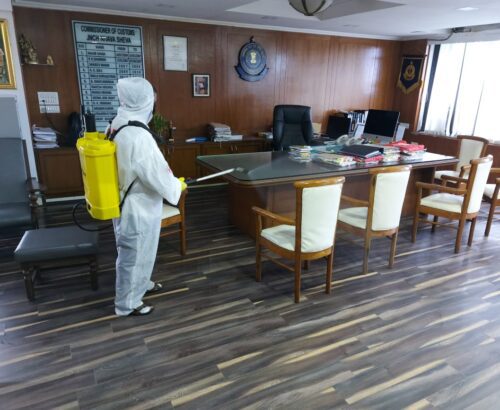

Comparing Costs and Value
A. Comparing the estimates received from different companies:
– Review and compare the estimates or quotes provided by the pest control service provider in Delhi. Take note of the breakdown of costs, including any specific services or treatments included. Consider factors such as the size of the treatment area, the severity of the infestation, and the scope of work outlined in each estimate.
B. Considering the overall value provided, including the quality of service, expertise, and guarantees:
– Look beyond the cost alone and assess the overall value offered by each pest control prices service provider. Consider factors such as the company’s reputation, experience, and expertise in handling your specific pest problem. Evaluate the quality of their customer service, professionalism, and responsiveness. Additionally, inquire about any guarantees or warranties provided for their services.
C. Evaluating the long-term cost-effectiveness of the proposed treatment plan:
– Consider the long-term cost-effectiveness of the proposed treatment plan. While one provider’s initial cost may be lower, their approach and effectiveness in eliminating pests and preventing future infestations may differ from another provider. Evaluate the durability and sustainability of the treatment plan in terms of long-term pest control and prevention. A higher-quality service that effectively addresses the root cause of the problem may result in better long-term cost savings by minimizing the need for repeated treatments.
D. Inquiring about available discounts or bundled services:
– Ask the pest control service providers if they offer any discounts or bundled services. Some companies may provide promotional offers for new customers, seasonal discounts, or package deals that include multiple treatments or additional services at a reduced rate. Inquire about these options to maximize the value and potentially lower the overall cost of the services.
E. Seeking clarification on any hidden or additional costs:
– Ensure that you have a clear understanding of the costs involved and inquire about any potential hidden or additional charges. Ask about any potential extra fees for emergency services, follow-up visits, or maintenance plans. Clarify if there are any conditions that could result in additional costs during the treatment process.

